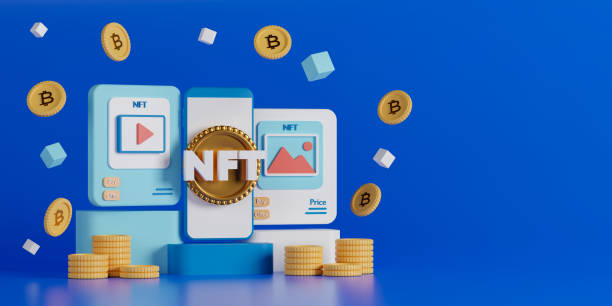In a world dominated by money, status, attention and fame – it’s no wonder that many people are struggling to find true happiness. The pursuit of these things can be disruptive to everyday life of business promotion, and causes more harm than good. They can often cause an imbalance in the individual’s priorities and lead them into situations which are not conducive to their own personal growth.
So what is the answer?
Non fungible tokens (NFTs) are little pieces of digital information which have more value attached to them than any other type of data on earth right now – but they don’t have any intrinsic worth (unlike traditional money). NFTs hold power through scarcity, uniqueness and utility.
1. Scarcity
NFTs are digital objects which are intentionally scarce or limited in their production – so they can be valued by the market. This can be applied to anything from virtual baseball cards, to pieces of art, to collector’s items.
These NFTs can be traded for real money, or for other NFTs. The value of these NFTs are entirely dependent on the owner’s desire to hold onto them – and their attachment to them. People with a high attachment to an NFT will be less willing to part with it for their own gain, making the value of that NFT higher.
But unlike traditional money, you cannot go out and print more of these NFTs – limiting the supply, which makes holding onto NFTs very valuable indeed.
2. Uniqueness
NFTs are digital objects which are limited in their production – making them special and unique in their own right. Many of these have been created by people who have become inspired by the blockchain technology, and want to get involved with it in some way, shape or form.
These NFTs can be traded for real money, or for other NFTs. The value of these NFTs are entirely dependent on the owner’s desire to hold onto them – and their attachment to them. People with a high attachment to an NFT will be less willing to part with it for their own gain, making the value of that NFT higher. Website list is here.
3. Utility
Due to its scarcity, uniqueness and the fact that it can serve a purpose in the owner’s life – these non-fungible tokens may very well have utility in the future – this is where it starts getting interesting. The more useful an NFT becomes, the more valuable it becomes – not just because people want it, but also because you have created something which has a real world use case. This is different to using the NFT for traditional purposes (e.g. buying a virtual card game or movie) – because the utility of those traditional items are not limited by supply, and the functionality they provide is purely theoretical – this makes the NFTs more valuable in other ways in their own right.
These non-fungible tokens can be traded for real money, or for other NFTs. The value of these NFTs are entirely dependent on the owner’s desire to hold onto them – and their attachment to them. People with a high attachment to an NFT will be less willing to part with it for their own gain, making the value of that NFT higher.
4. Status
NFTs can give you status in society – and it can be a different type of status to what you are accustomed to. Money, status and fame are easy to achieve when you have the right connections and make the right choices about manual backlinks.
In some cases, NFTs and BlockChain have been created just for the sake of it – because they create an interesting effect in your digital world, or because it makes a statement about your own personality. The value of these types of NFT is entirely dependent on their owners desire to hold onto them – and their attachment to them. People with a high attachment to an NFT will be less willing to part with it for their own gain, making the value of that NFT higher.
5. Purpose
It doesn’t matter what you have done in your life – it only matters how you use it. This means that if you live your life with a clear purpose, and something you are passionate about doing – then it’s better to be doing it than not – even if the monetary rewards are lower or nonexistent.
This age-old saying really does hold true: “Do what you love, and the money will follow”.If it makes sense to do what you love – even if you’re making very little money – then it’s still worth doing… All other things being equal. But there is a huge caveat here: “All other things being equal”.
What is the point of doing what you love if you can’t make money doing it? It doesn’t work like that. You could be a great artist, but without money – what are you going to do for food?

